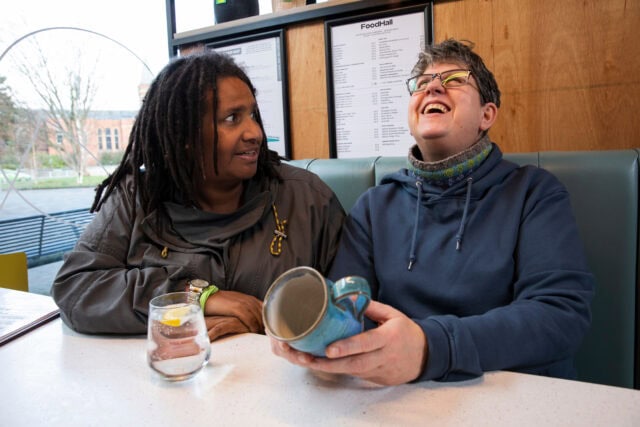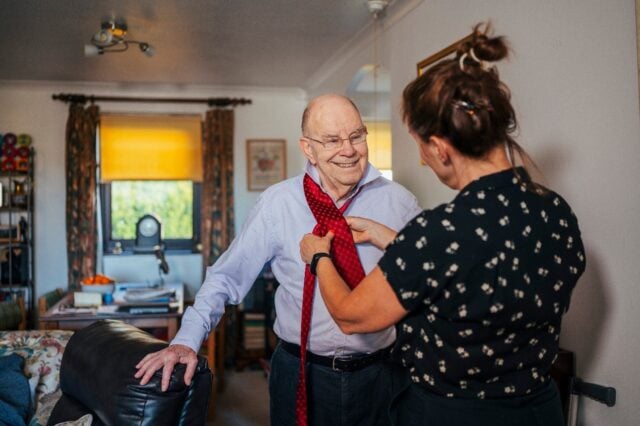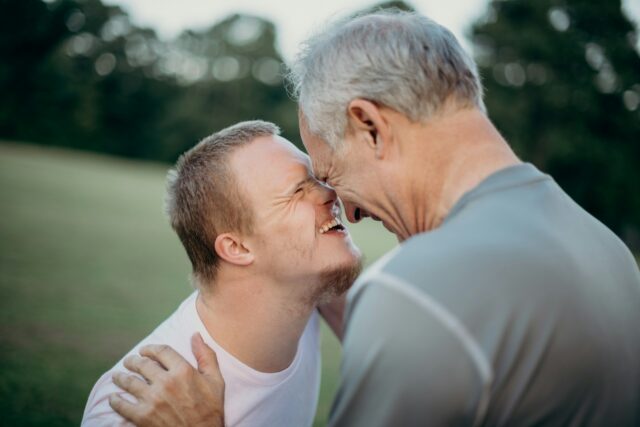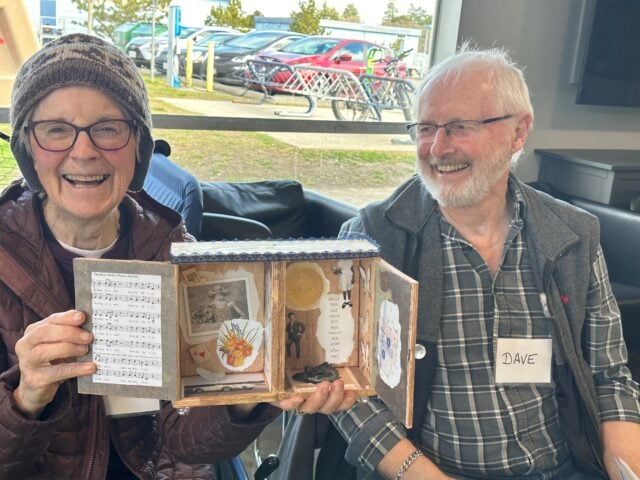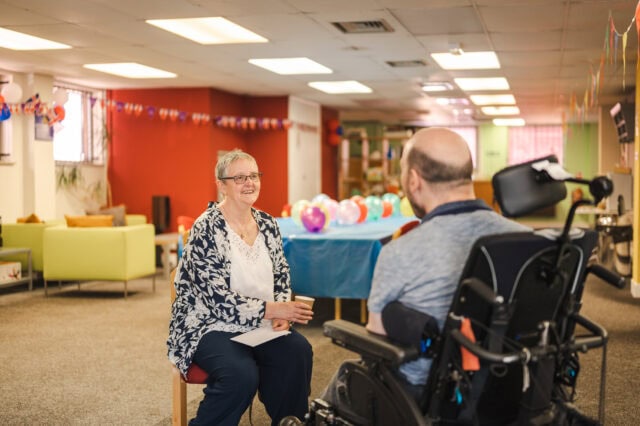By North West Behavioural Supports
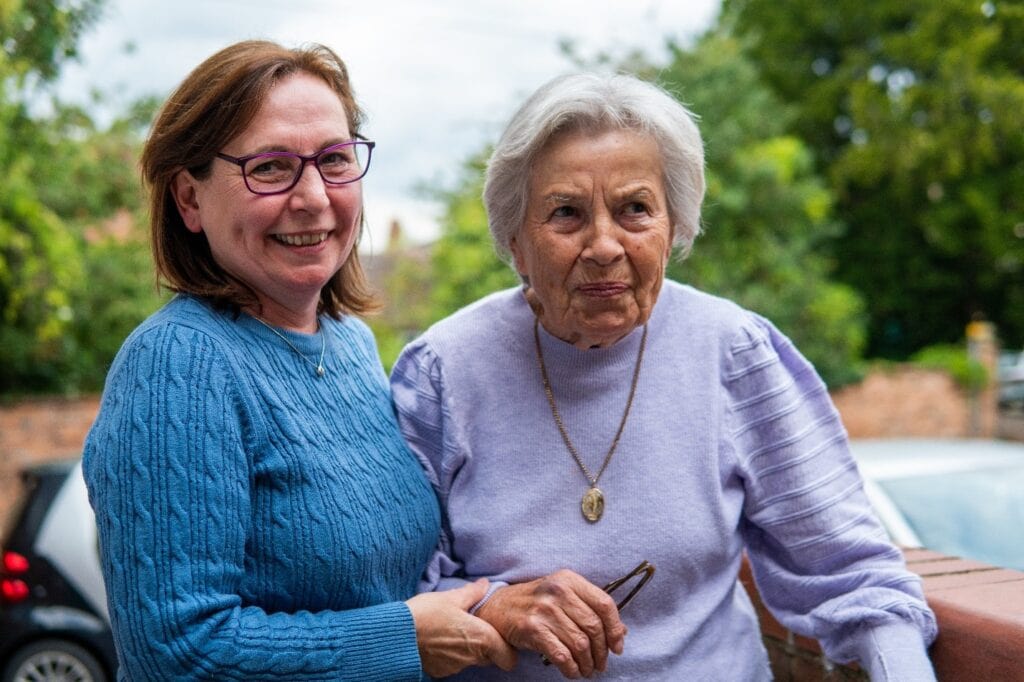
As part of Behaviour Supports Ontario (BSO), our team specializes in support for older adults, and care partners of older adults, exhibiting complex responsive behaviours/personal expressions associated with dementia, mental health, substance use and/or other neurological conditions related to aging.
We are located in Northwestern Ontario and support individuals residing within the city and district of Thunder Bay, regardless of setting (e.g. Community, Supportive or Group Housing, Long Term Care, Acute Care or Transitional Care Units).
Our interprofessional team is made up of regulated and non-regulated health care professionals, whose varied and complementary roles are devoted to the comprehensive care and well-being of our clients and their care partners. This includes assessment, education, coaching and mentoring, advocacy and resource sharing. As such, we have an expansive list of resources for both clinicians and for individuals and their families/care partners. Some of our go-to’s, or most well-received and requested resources, are listed below.
Resources for Clinicians
Dementia Training Australia (DTA) responsive behaviours app
One of the tools we recommend for clinicians and health care staff is the DTA responsive behaviours app and reference cards. Although developed in Australia, the content is universal. The App and reference cards gives the reader, at a glance, the do’s and don’ts for nine categories of responsive behaviours as well as Delirium and Depression. It also gives suggestions for assessments to explore each category further.
App: [Editor’s note: App is no longer available. Visit Dementia Training Australia for more resources: https://dta.com.au/changed-behaviour/]
Reference Cards: https://dta.com.au/resources/responsive-behaviours-quick-reference-cards/
Person-Centered Language
Acute Care
The Regional Geriatric Program of Toronto (RGP) developed Person Centered Language education and resources for both acute care and long term care settings. These resources promote documentation in the health record that puts the person first, rather than the behaviour, and encourages detail and context around the behaviour, to help clinicians respond more effectively. For example: “hoarder” vs “the person prefers to collect small objects and store underneath their bed”. The latter is more respectful of the individual and provides the clinician with information needed to respond appropriately.
Long-Term Care (LTC)
The Person-Centered Language tool, developed by BSO and CLRI is a fantastic tool to help change the language culture around dementia in LTC, to promote respect and dignity for the individual and to help care partners better understand responsive behaviours and their meaning. By changing how we describe behaviour, we can change how we understand and respond, for example: “aggressive/difficult” vs “physical responsive behaviour”. The latter highlights the action as a result of a trigger to which the individual is reacting, rather than an innate trait of the individual. This may lead us to investigate what that trigger is and address it appropriately.
https://clri-ltc.ca/files/2020/04/Summary-of-Person-Centred-Language.pdf
Resources for individuals and their families/care partners
Shifting Focus: a guide to understanding unpredictable dementia behaviour
This booklet was produced in collaboration with BSO, Alzheimer’s Society of Ontario and the Alzheimer’s Knowledge Exchange and is intended to help, family, friends and co-residents (i.e. in congregate living settings like LTC), to better understand and support individuals exhibiting responsive behaviours that cause unease or distress.
There are two versions of this booklet, a full version (best for families and friends) and a condensed version (best for co-residents). The full version provides an overview of how dementia affects the various brain regions and identifies common behaviours that are a result of those brain changes, as well as recommendations on how to respond. This version also includes information to support family and friends when their loved one moves into a Long-Term Care Setting or other institutional setting.
The bonus with Shifting Focus is it incorporates the voice of individuals living with dementia.
Full: https://brainxchange.ca/Public/Files/Caregiving/Shifting_Focus_Guide_-full_version.aspx
Condensed: https://brainxchange.ca/Public/Files/Behaviour/ShiftingFocusBooklet.aspx
Personhood tools: My personhood summary (BSO) and All about me (Alzheimer’s Society)
These tools provides space for the individual and their families/care partners to write down the most important information others need to know, in order to provide them the best care possible. This may include details around routine, likes/dislikes, history, coping mechanisms, triggers, etc. Once the tool is completed, it can be used to share information quickly with clinicians and care teams in hospital, LTC, etc., to support a smoother transition through levels of care.
My Personhood Summary: https://brainxchange.ca/Public/Special-Pages/BSO/Tools-Resources/My-Personhood-Summary%C2%A9-/My-Personhood-Summary%C2%A9-Tool-Download-and-Permissi
All About Me booklet: https://alzheimer.ca/sites/default/files/documents/All-About-Me-en-Alzheimer-Society.pdf
_ _ _
This article was contributed by the following team members from North West Behavioural Supports:
Trisha Wilson, RSW, Psychogeriatric Resource consultant with the Specialized Geriatric Services team from St. Joseph’s Care Group
Dawn Shea, Behavioural Supports Education Lead with the Specialized Geriatric Services team from St. Joseph’s Care Group
Cassandra Curtis, RSW, Psychogeriatric Resource consultant with the Specialized Geriatric Services team from St. Joseph’s Care Group
Would you like to curate a resource list for the Behaviours in Dementia Toolkit? Reach out to CCSMH knowledge broker Nick Ubels at [email protected]

